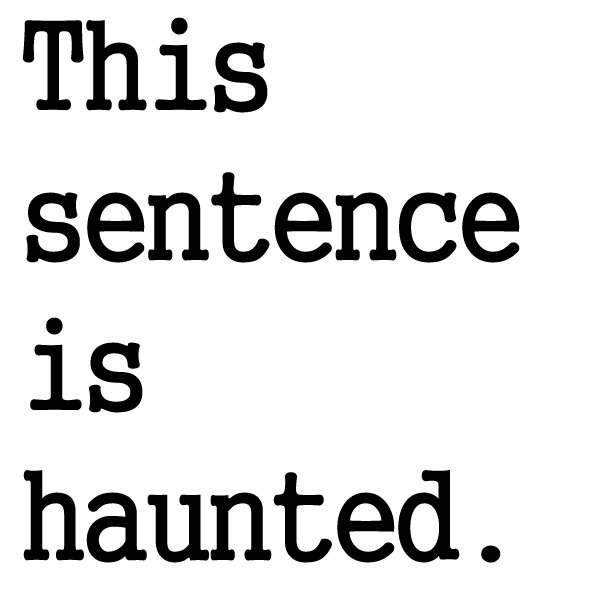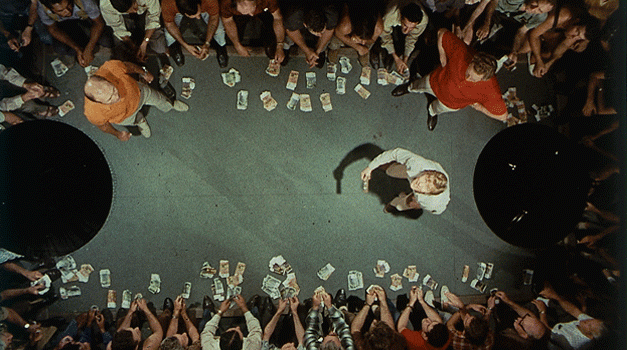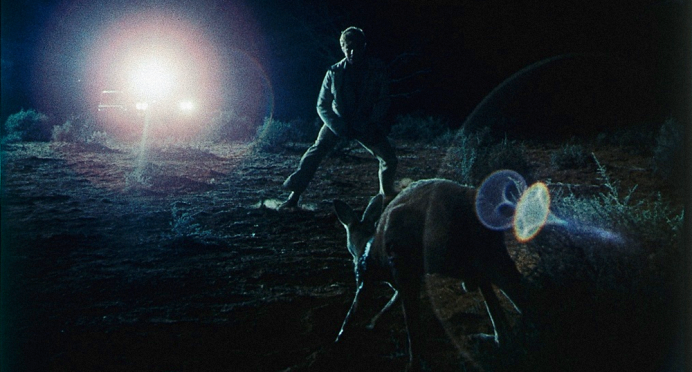Before I delve into the film itself, here's the background on it from the press release:
Alongside Mad Max and Walkabout, WAKE IN FRIGHT is widely acknowledged as one of the seminal films of modern Australian cinema. Author Neil Rattigan, in his book about the New Australian Cinema, Images of Australia, called it "a cinematic trip into hell... No other Australian film offers such a savage indictment of a great number of cherished cultural perceptions."
Directed by Ted Kotcheff (First Blood, North Dallas Forty, The Apprenticeship of Duddy Kravitz), the movie tells the story of a British schoolteacher's descent into personal demoralization at the hands of the deranged, hard-drinking residents of a remote Australian town. John Grant (Gary Bond, Anne of the Thousand Days, the BBC's Great Expectations) teaches at a tiny school in the Outback. On his way to Sydney to catch a vacation flight, he stops in a rural mining town, where he is reluctantly drawn into the macho antics of the local men. After losing his money in the gambling game two-up, he is taken on a drunken and brutal kangaroo hunt with three of the beer-guzzling louts - a horrifying ordeal that culminates in a shattering sexual assault.
WAKE IN FRIGHT had its world premiere at the 1971 Cannes Film Festival, where it was nominated for a Palme d'Or. Retitled Outback and hurried into a few theaters across the U.S. with minimal advertising support, the movie lasted barely a week before it was pulled from circulation and vanished into obscurity. For over three decades the film materials were thought to be lost, until the movie's persistent cinematographer unearthed the original negative elements in Pennsylvania in canisters marked for imminent destruction.
The materials were painstakingly restored frame by frame, and the new restoration was invited back to Cannes in 2009. Guest curator Martin Scorsese said: "WAKE IN FRIGHT is a deeply - and I mean deeply - unsettling and disturbing movie. I saw it when it premiered at Cannes in 1971, and it left me speechless. Visually, dramatically, atmospherically and psychologically, it's beautifully calibrated and it gets under your skin one encounter at a time, right along with the protagonist played by Gary Bond. I'm excited that WAKE IN FRIGHT has been preserved and restored and that it is finally getting the exposure it deserves."
The film went on to a successful theatrical release in 50 top markets this fall. It has been lauded for its stark and uncompromising vision by such champions as Rex Reed, who said it "may be the greatest Australian film ever made," and celebrated musician and screenwriter Nick Cave, who said it's "the best and most terrifying film about Australia in existence."
WAKE IN FRIGHT follows John Grant as he travels from the tiny Outback town he works in, towards Sydney and his girlfriend Robin. The film is bookended by the above panorama of the vast, flat nothing that comprises the centre of Australia; a dusty, dry setting that is only ever broken by the intermittent flashes of Robin emerging from the sparkling blue sea...and by the oceans of booze consumed by the men John meets.
My brother moved to Oz a year ago, and he regularly tells me how much everyone over there drinks, so it's as interesting as it is unsettling to see that this has been the default mindset in that country for well over 40 years. "At least" (you could argue) "the reason for doing it in this film is because the characters live in the middle of nowhere, so there is nothing else to do except drink". Perhaps. In any case, every male in this film drinks virtually non-stop, and at one point John comments that 'it's okay to rape a woman, but turn down a drink? Now that's a crime'.
Things start innocently enough. John stops off in a small town called Bundanyabba (or just 'Yabba' as the locals call it) and heads to the local bar for a beer. He's quickly eyeballed and befriended by Jock, the sheriff, who rapidly instigates the 'courtesy' of drinking as much as quickly as possible. Jock takes John to a bar for food, and whilst there the schoolteacher watches a gambling game involving coins. It looks simple enough - place bets on whether both coins will land heads or tails side up - so John takes part, and makes a killing. However, he goes a little too far and ends up completely broke. From then on, he is effectively circling the drain, but he doesn't even know it.
John's a 'bonded' schoolteacher, you see. From what I understand of it, as it's explained in the film, this means he's paid $1000 to get a job, but that also means he has to go where he's sent; hence working in a tiny Outback town. He sees the fun, simple coin game as an easy way to make this money and therefore leave the slavery (as he puts it) of education. This introduces both central themes of the film: imprisonment and escape. Everybody John meets is trapped in some way, shape or form, whether it be by addiction, location, finances or something more emotional/spiritual. However, John is the only one who actively (at first) looks for a way out.
Top actor Donald Pleasance stars as 'Doc', an alcoholic medic who may be the only other 'intelligent' man John meets. However, Doc knows his strengths and weaknesses, and has made a life for himself in Yabba. Tellingly, at one point John is told that there are a lot of suicides in Yabba, and it's not hard to see why. People drink and fight. The heat consumes all. Through the apparent friendliness of the locals, John is taken under the wing of various characters who clearly want to help him out...but not out of the town.
John becomes complicit in their lives over the course of a very long weekend filled with heavy drinking. There's the sense that he is, for once, genuinely having fun. Sure, he has to get to Sydney and his girlfriend, but what's the harm in enjoying some true Australian hospitality on the way there? However, things start to get more than a little uncomfortable about three quarters of the way through when, after a fumbled romantic encounter, John tags along on a kangaroo hunt. I found these scenes (which last for quite a while) very distressing. Real kangaroos get shot and hit by a car, their throats slit and their bodies catapulted through the air by the force of rifle blasts. There is a producer's note at the end of the film that explains these scenes are taken from a real life hunt, but that doesn't make them any less upsetting.
John's had enough, so he tries to leave Yabba, but like the film itself, ends up back where he started. I got vibes of DAY OF THE LOCUST towards the end of WAKE IN FRIGHT as things take a surreal turn (though not as nightmarish as LOCUST they are no less intense) before the film ends on a bleak note, but not in the way you might think.
WAKE IN FRIGHT asks "Can we ever escape Fate?" Can we make the lives we want for ourselves, or will there always be someone or something that stops us? Is the best we can hope for, as Doc so expertly embodies, simply to recognise our faults/limits and live according to those? I, personally, don't think so, but it's still something worth thinking about.
And how can I end a blog post involving Australia and NOT play this? Completely without irony, too, as I own this album and it's great (if dated):





No comments:
Post a Comment